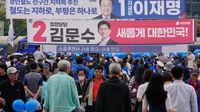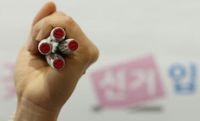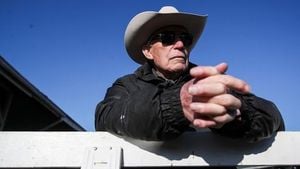South Korea stands at a critical crossroads as it prepares to elect a new president on June 3, 2025, following a period of political upheaval marked by a failed curfew, mass protests, and the impeachment of former President Yoon Suk-yeol. After months of unrest and a six-hour emergency curfew that shook the nation, the South Korean people are heading to the polls in what is expected to be one of the most consequential elections in the country’s recent history.
Voting officially begins at 6 a.m. across 14,295 polling stations nationwide and will continue until 8 p.m., with an anticipated record-breaking turnout fueled by deep societal divisions and political tensions. According to the Central Election Management Commission (CEMC), more than 44 million eligible voters are participating in this election, which is seen as a pivotal moment to restore stability and chart a new course for the nation.
Preliminary results are expected to emerge around midnight on election night, although the introduction of a new “artificial review mechanism,” which involves manual ballot inspection following machine sorting, may delay the final count until early Wednesday morning. This measure reflects heightened concerns about vote counting accuracy amid the charged political atmosphere.
Security is paramount during this election. The South Korean National Police Agency has declared a “Class A Emergency Order,” the highest alert level, effective from the start of voting until the new president assumes office. Some 28,590 police personnel will be deployed nationwide to safeguard polling stations, ballot transportation, and counting centers. In Seoul alone, approximately 10,800 officers will ensure order at over 4,500 polling and counting sites, with armed units assisting in the secure transport of ballot boxes and mobile teams patrolling key districts such as Mapo, Dongdaemun, Yeongdeungpo, and Gangnam.
The election pits five candidates against each other, but the race is primarily a showdown between Lee Jae-myung of the opposition Democratic Party and Kim Mun-hwa of the ruling People Power Party. Recent Gallup Korea polls from May 28 show Lee leading with 49% support, while Kim trails at 36%. This marks a significant shift from the 2022 presidential election, where Lee narrowly lost to Yoon Suk-yeol by a razor-thin margin of just 0.73 percentage points—the closest presidential race in South Korean history.
Lee’s political comeback is remarkable given the challenges he faces. The Supreme Court recently ruled that he violated election laws in 2022 by spreading false information during his campaign, yet the court has postponed ongoing bribery-related cases against him until after the election. These allegations, which Lee claims are politically motivated, stem from his previous roles as governor of Gyeonggi Province and mayor of Seongnam. Additionally, Lee survived a stabbing attack at a Busan press conference last year, underscoring the volatile climate surrounding this election.
During his campaign events, Lee has taken extensive security precautions, speaking behind bulletproof glass with snipers and counter-terrorism units deployed to monitor crowds. Notably, he has garnered support from some conservative lawmakers who previously opposed him, signaling a broad coalition seeking political stability after the turmoil of recent years. This cross-party appeal is further evidenced by defections from the ruling party, such as Kim Sang-wook, who left the People Power Party in early May to join Lee’s Democratic Party.
Kim Mun-hwa, Lee’s strongest rival and a former labor activist turned staunch conservative, has faced difficulties consolidating support within his own party. Polls indicate only 55% of conservatives who backed Yoon in 2022 plan to support Kim this time around, reflecting dissatisfaction with the ruling party following Yoon’s impeachment. While Kim agrees with some of Lee’s policy proposals, including distancing himself from Yoon’s legacy, he considers the impeachment excessive.
The political stakes are high. Professor Lim Woon-taek, a sociology expert at Keimyung University and former presidential policy planner, described the impact of the failed curfew, attempted rebellion, and impeachment as a “heavy blow” to South Korean democracy. He warned that the incoming president will inherit a “heavy burden,” with urgent issues like youth unemployment, social inequality, and climate change demanding immediate attention. Recent studies reveal that 38% of South Korea’s wage earners last year were unofficial workers, including contract and part-time employees, highlighting economic vulnerabilities that the previous government failed to address.
Lee has promised to pursue business-friendly policies focused on research and development and investment in artificial intelligence, deliberately steering clear of divisive social issues such as gender conflicts. This pragmatic shift contrasts with his earlier left-leaning advocacy for universal basic income. Lee’s image as a defender of political freedom was solidified on the night of December 3, 2024, when he live-streamed himself scaling the National Assembly wall amid military encirclement, urging lawmakers to reject Yoon’s attempt to impose a curfew and mobilize troops.
One of Lee’s core campaign pledges is to hold accountable those involved in the failed curfew plan and to strengthen legal safeguards against future presidents imposing similar emergency measures. He also advocates for a constitutional amendment allowing presidents to serve two four-year terms instead of the current single five-year term, aiming to provide greater continuity in governance.
On foreign policy, Lee promises a pragmatic agenda that prioritizes South Korea’s national interests while maintaining strong ties with the United States. He seeks closer relations with neighboring China and Russia, aiming to ease heightened tensions with North Korea—a contrast to Kim Mun-hwa’s pledge to bolster military capabilities and seek enhanced security support from the U.S. to counter Pyongyang’s provocations.
Lee also plans to relocate the National Assembly and Presidential Office from Seoul to Sejong City, designating it as the new administrative capital. This move is intended to continue efforts to rebalance urban planning that have faced setbacks in recent years.
Meanwhile, Professor Lim highlights the critical need for future leadership to address climate change aggressively. South Korea is currently viewed as a “climate rogue state,” and failure to curb dangerous emissions threatens to restrict the country’s future exports. The nation’s trajectory, he asserts, hinges on whether the next president will confront these challenges head-on or delay action as the previous administration did.
The election results are anticipated to be announced late Tuesday night or early Wednesday morning. In the 2022 election, Yoon Suk-yeol was declared winner at 4:40 a.m. the day after voting. This time, with Lee Jae-myung’s strong lead, results could be revealed as early as Tuesday evening, though enhanced monitoring of polling stations to prevent counting errors may cause some delay.
As South Korea prepares to turn a new page, the eyes of the world remain fixed on this pivotal election, which will not only determine the country’s next leader but also set the tone for its democratic resilience, economic recovery, and regional diplomacy in the years ahead.





